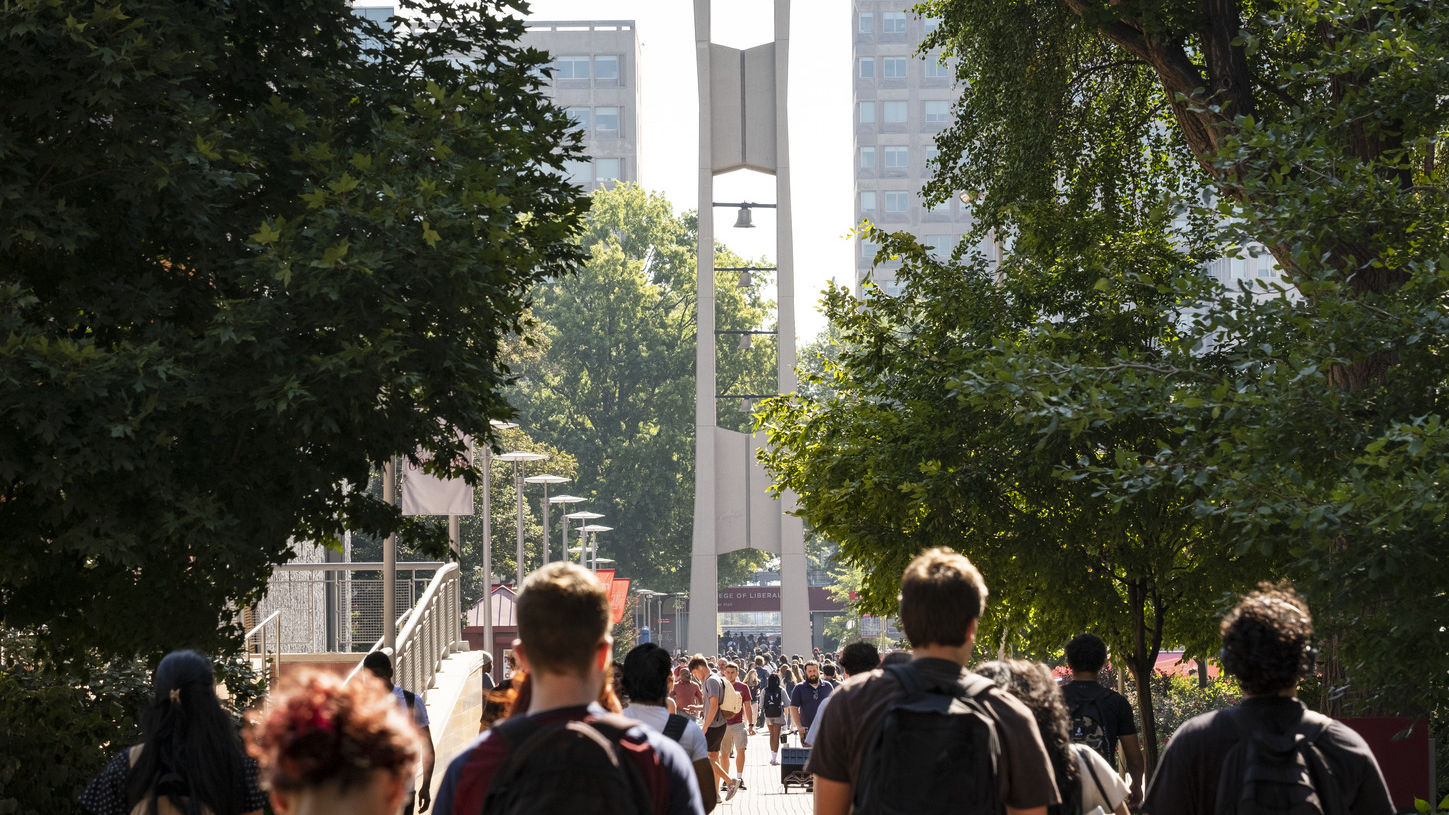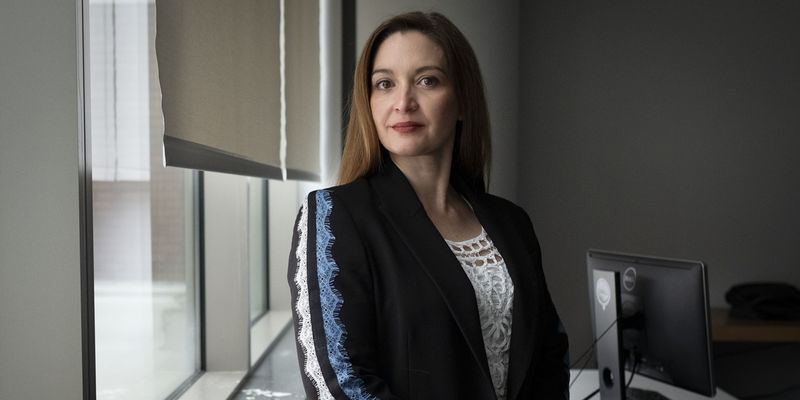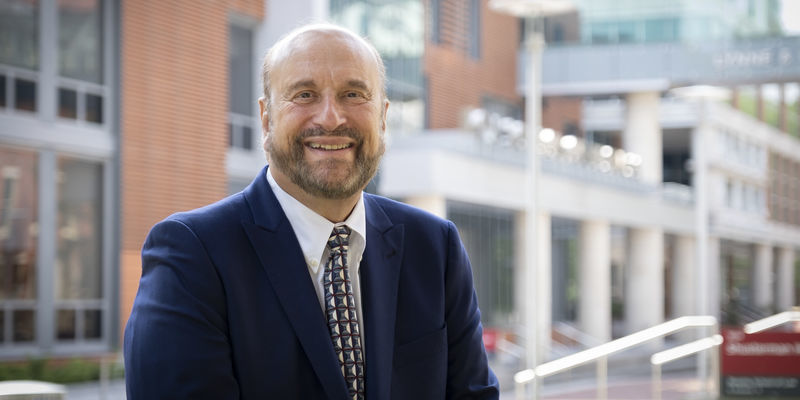Temple’s new AI policy prioritizes student learning
Ahead of the fall 2023 semester, Temple announced its policy on the use of generative AI tools like ChatGPT. Here’s how Temple approached the development of their policy.

When ChatGPT was publicly released on Nov. 30, 2022, it rocked higher education and left educators asking how they could protect learning against its improper use. At Temple University, this question propelled Lori Salem, assistant vice provost and director of the Student Success Center, and Stephanie Fiore, associate vice provost and senior director of the Center for the Advancement of Teaching, to find an answer.
Salem and Fiore had been tasked with developing an AI policy for Temple in response to ChatGPT that would allow students to benefit from the tool while simultaneously guarding against its misuse. At the same time, they also had to keep in mind that generative AI would likely become a foundational tool in most industries, which would then require students to be well-versed in the technology to be competitive in the job market.
Ultimately, the pair succeeded. In late August, Provost Greg Mandel announced through an email to the Temple community that Temple’s first AI policy would allow faculty to determine whether or not they permitted the use of generative AI in their classes. The policy also stated that when a faculty member has not explicitly stated their stance on the use of AI, the default policy, for now, must be that its use is prohibited. The student code of conduct was also updated ahead of the start of the semester to reflect the university’s new policy. In addition, faculty who request access to the university licensed Turnitin AI detector will be required to complete a brief asynchronous training to ensure they understand the limitations of the tool.
“I think its notable and exciting that the director of the Student Success Center and the director of the Center for the Advancement of Teaching are partnering together on this issue to develop Temple’s AI policy,” said Dan Berman, vice provost for undergraduate studies. “This is the right approach because it means the focus is on protecting students’ ability to learn and thrive in the classroom, in partnership with their instructors.”
Salem echoed this sentiment when describing Fiore and her approach to developing the policy. She feels confident that their approach to the AI policy reflects how Temple strives to work with students. “We wanted the policy to emphasize the importance of the learning experience here,” she said. “It’s not supposed to be about catching and disciplining people.”
During the spring and summer semester following ChatGPT’s launch, Salem and Fiore were methodical in developing Temple’s new AI policy. They spoke with hundreds of Temple faculty, including the Faculty Senate, and over 100 Temple students to better understand how the Temple community felt about incorporating this new technology in the classroom. They also engaged with peer institutions to learn how they were responding to generative AI tools. Fiore joined a national group of educational developers that meet monthly to discuss AI issues and exchange ideas and updates on AI policies.
It became increasingly clear to Salem and Fiore through their conversations that they also needed to investigate whether there were reliable ways to detect the improper uses of AI. However, ChatGPT was such a new technology that there was little data about the effectiveness of AI detectors. So, Salem and Fiore decided to run their own research test using an AI detection tool from Turnitin, which they found to be the strongest of the available AI detection tools.
They created 120 samples of writing that were broken into four categories: entirely human-generated, entirely AI-generated, generated using an AI paraphrasing technique, and a hybrid of both human- and AI-generated text. They then ran these texts through Turnitin’s AI detection tool and found that it almost always correctly identified the entirely human and entirely AI-generated texts but struggled with the hybrid and paraphrased texts.
This study was instrumental in helping Salem and Fiore develop Temple’s AI policy. Paired with the extensive conversations they’d had with the Temple community and industry peers, they were able to establish the temporary AI policy for the fall 2023 semester that was announced through Provost Mandel’s email.
Fiore says that she has received positive feedback from colleagues at other institutions about Temple’s nuanced policy. “It puts the decision-making about the use of AI in the hands of faculty where it belongs, but also proactively includes a blanket policy for the fall semester,” she says. Fiore believes the blanket policy provides “breathing room” for faculty to develop more expertise with generative AI before deciding to incorporate it in their classes.
The policy ultimately empowers faculty to prioritize learning. “If the whole purpose of an assignment was for the student to wrestle with figuring out how to articulate something, then using AI would disrupt the purpose of the assignment,” says Fiore. “But, in other cases, when the purpose of the assignment is to just get background knowledge of a topic so that they can do something with it in class, in that case, using AI is not necessarily a problem.”
Salem and Fiore’s work is far from over. Their initial policy took a cautious approach to ensure that the Temple community had clear guidance on the use of generative AI for the fall semester. It also gives Salem and Fiore more time now to continue exploring more nuanced stances on AI for future semesters, while also allowing their colleagues time to learn more about the technology. In the meantime, Salem and Fiore received an invitation to formally present their findings to the team at Turnitin in order to help further refine their AI detection tool. The pair readily accepted the invitation with the hope that their work will help their peers around the world be better equipped to facilitate learning in the time of AI.
“It is important for students to understand how to use these AI ethically and effectively, as it has the capacity to be helpful to students in learning and in their future workplaces when used appropriately,” says Fiore. She just wants students to remember that learning happens through the thinking, writing and iterative process of doing their classwork. “Using these tools as a shortcut will ultimately cut short their learning and growth—which is the ultimate goal of a college education.”


